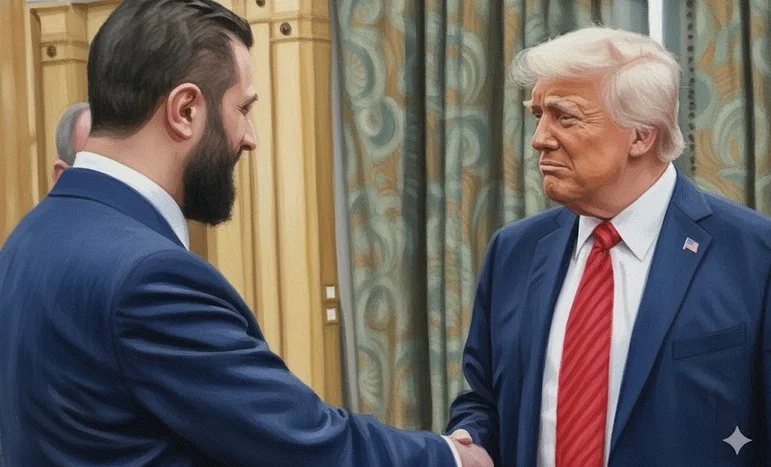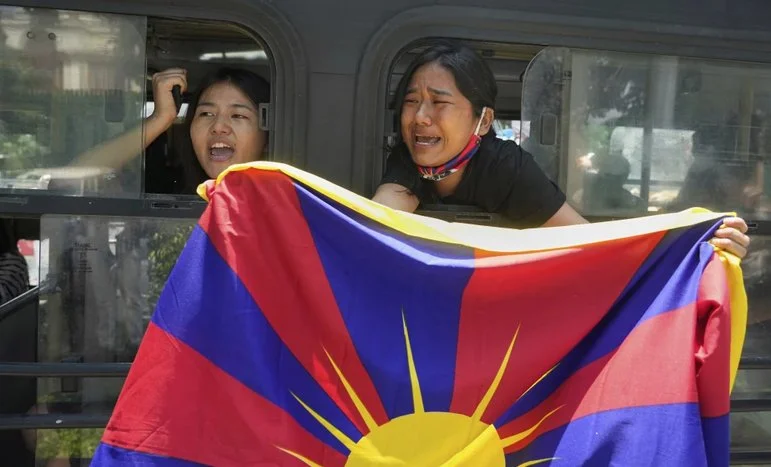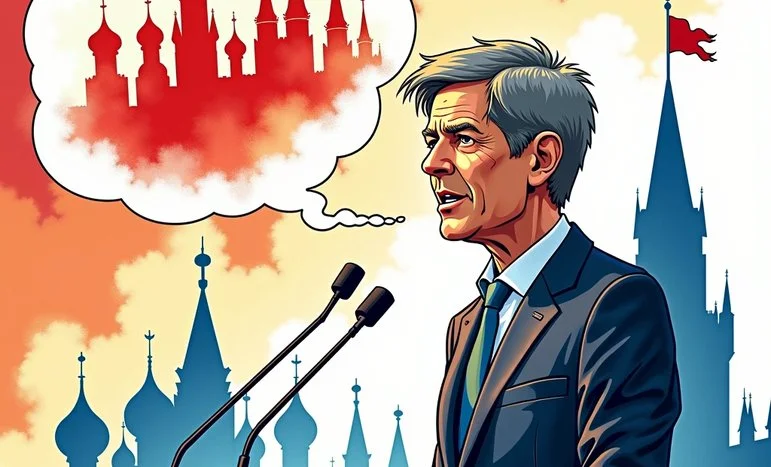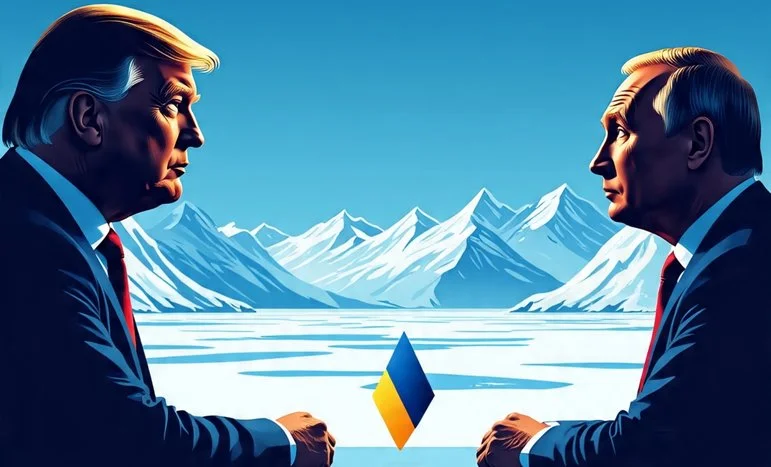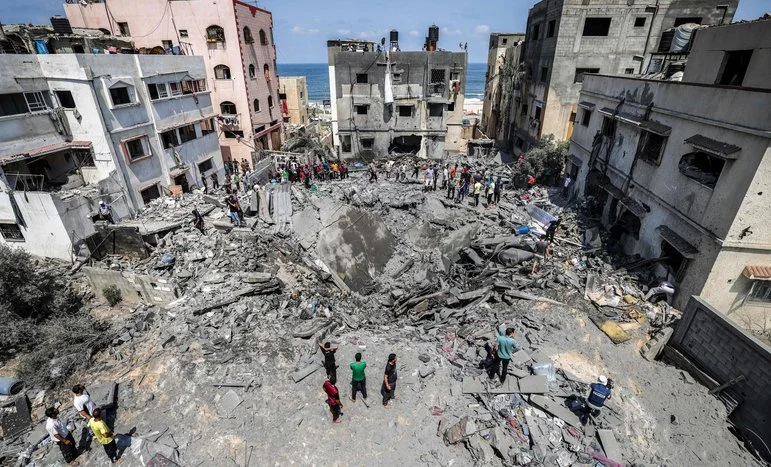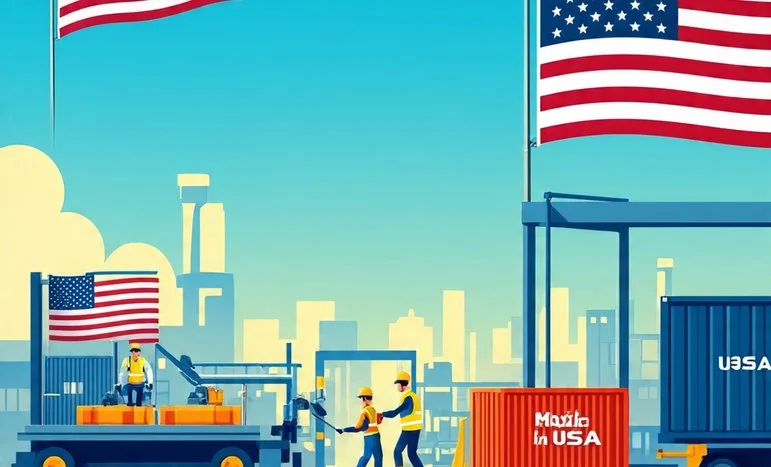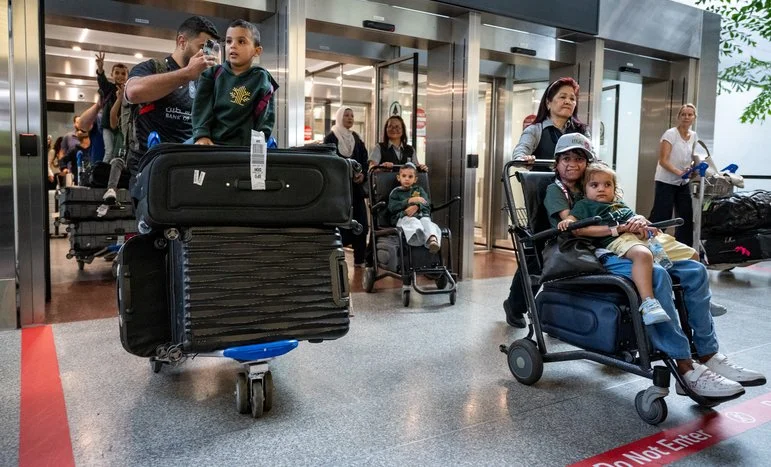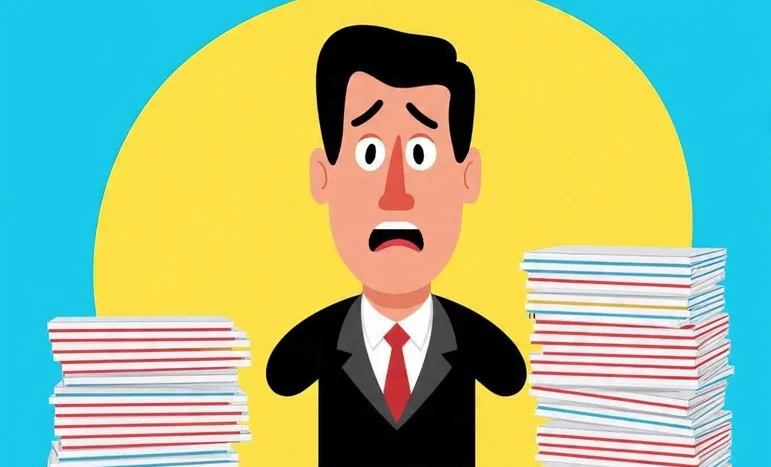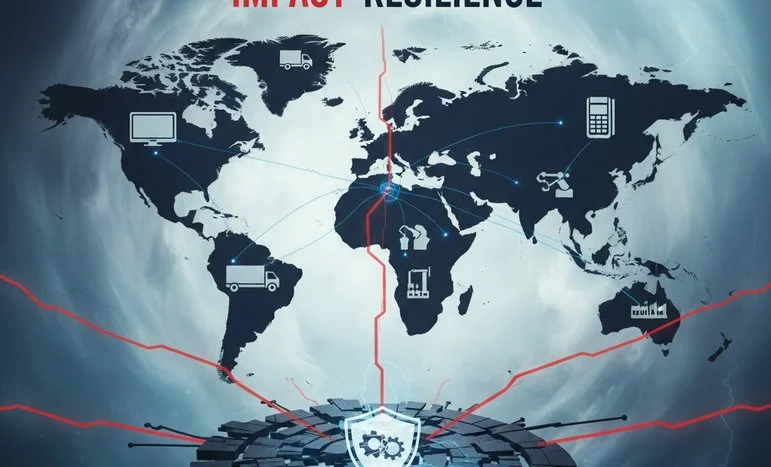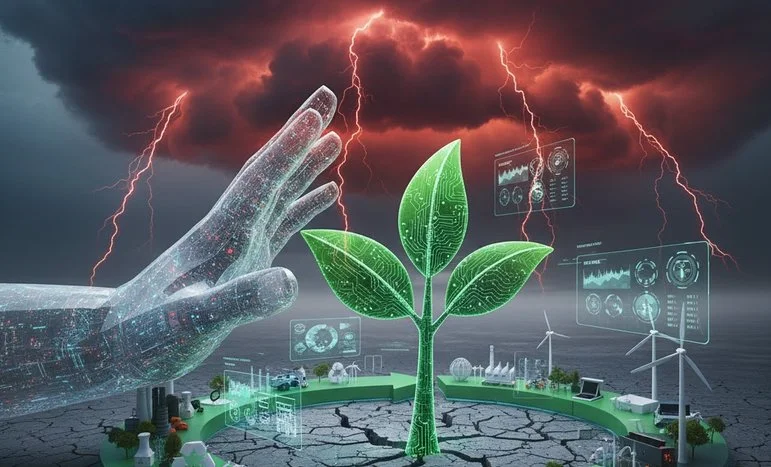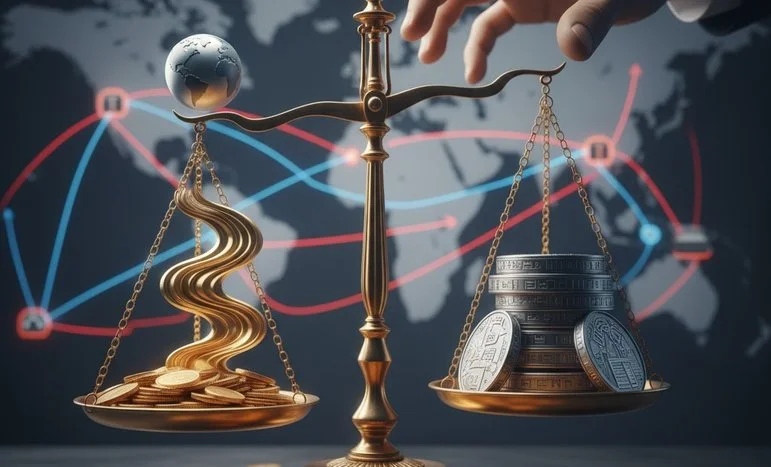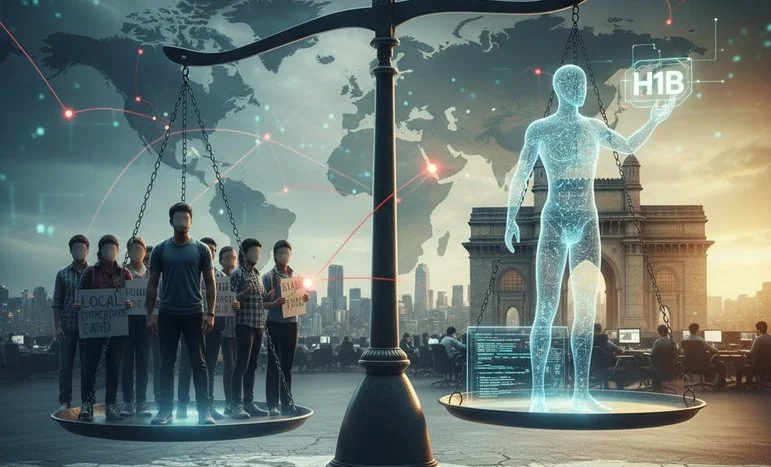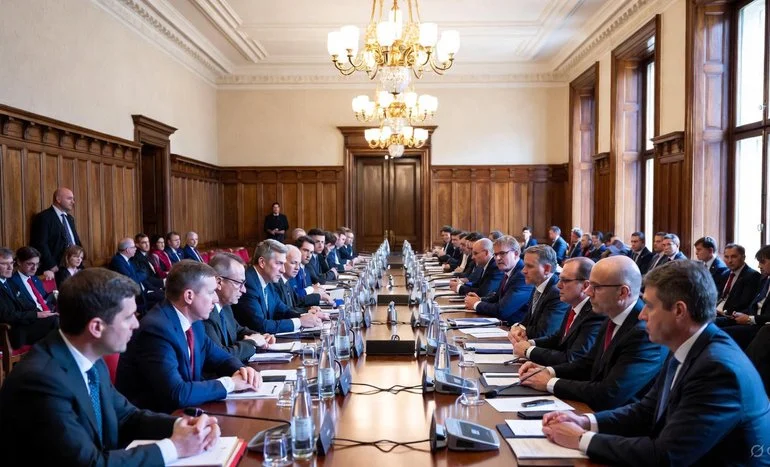
Russia-Ukraine Peace Talks in Geneva: A Vital Push for Lasting Diplomatic Resolution
The Russia-Ukraine peace talks in Geneva have emerged as one of the most significant diplomatic gatherings since the full-scale invasion began in early 2022, bringing together high-level representatives from Ukraine, the United States, and major European partners in a determined search for a viable path to end the bloodshed. Held in the neutral and historically symbolic Swiss city, these negotiations reflect a collective recognition that military stalemate alone cannot deliver lasting stability, and that structured dialogue remains the only realistic route to a sustainable resolution. Ukrainian presidential chief of staff Andrii Yermak led Kyiv’s delegation with a clear mandate: any agreement must guarantee Ukraine’s sovereignty, territorial integrity, and long-term security while ensuring that the war cannot be restarted at Moscow’s whim. President Volodymyr Zelenskyy reinforced this position in real-time updates on Telegram, stressing that a “positive result” from the Russia-Ukraine peace talks in Geneva is essential not just for Ukraine but for global security.
The talks began with a focused trilateral session between Yermak and the national security advisers of the United Kingdom, France, and Germany, before expanding to include the American team headed by Secretary of State Marco Rubio, Army Secretary Dan Driscoll, and special envoy Steve Witkoff. This sequencing underscored the importance of allied unity before engaging broader proposals. At the center of discussions lies a 28-point U.S. peace initiative drafted under President Donald Trump’s administration, a document that has generated intense interest and cautious scrutiny across European capitals. While the full text remains confidential, sources familiar with the plan indicate it addresses troop withdrawals, ceasefire monitoring mechanisms, security assurances, and post-war reconstruction funding. Secretary Rubio publicly pushed back against early media characterizations that portrayed the proposal as overly concessionary, insisting instead that it serves as a serious starting point for negotiation rather than a take-it-or-leave-it ultimatum. President Trump himself described the conflict as one that “never should have happened” and expressed confidence that his administration could bring it to a responsible close.
European leaders have approached the Russia-Ukraine peace talks in Geneva with a mixture of solidarity and vigilance. French Minister Delegate for the Armed Forces Alice Rufo stated unequivocally that any viable agreement must preserve Ukraine’s full right to self-defense and reject artificial caps on its military capabilities. Polish Prime Minister Donald Tusk, speaking alongside counterparts from Canada and Japan, welcomed renewed diplomatic momentum but posed pointed questions about the origins and authorship of the American plan, emphasizing the need for transparency among allies. The coordinated European stance—articulated jointly by the national security advisers of Britain, France, and Germany—has strengthened Ukraine’s negotiating leverage by making clear that isolated bilateral deals are unacceptable. This unified front demonstrates how far transatlantic coordination has come since the chaotic early months of the war, when aid flows and strategic alignment were still being calibrated.
Andrii Yermak’s updates from Geneva conveyed cautious optimism, noting that the atmosphere was “very constructive” and that allies were working intensively toward a “lasting and just peace.” His delegation’s preparatory work in the days leading up to the summit proved crucial, allowing Ukraine to present detailed counter-proposals on security guarantees, sanctions relief calibration, and war-crimes accountability mechanisms. President Zelenskyy later confirmed that Washington had shown willingness to incorporate key elements of the Ukrainian vision into the evolving framework, marking a significant shift from earlier perceptions that the U.S. document leaned too heavily toward Russian demands. These adjustments reflect the reality that no proposal can succeed without Kyiv’s active buy-in, a lesson learned from the failed Minsk agreements of 2014–2015 and the aborted Istanbul protocol of spring 2022.
Parallel diplomatic channels have also gained traction on the margins of the Russia-Ukraine peace talks in Geneva. Turkish President Recep Tayyip Erdoğan announced plans for an imminent call with Vladimir Putin to revive the Black Sea grain corridor, building on his recent meeting with Zelenskyy in Ankara. A restored grain deal would not only ease global food price pressures but could serve as an early confidence-building measure ahead of broader ceasefire arrangements. Meanwhile, the question of frozen Russian sovereign assets—estimated at over $300 billion—continues to loom large in Western discussions about reconstruction financing. European and American officials increasingly view targeted use of these funds as both a moral and practical necessity for rebuilding Ukraine’s shattered infrastructure.
The broader historical context cannot be ignored when assessing the potential impact of the Russia-Ukraine peace talks in Geneva. What began as a lightning offensive aimed at regime change in Kyiv has evolved into a protracted war of attrition that has reshaped European security architecture, accelerated NATO’s eastern expansion, and triggered the most comprehensive sanctions regime in modern history. Ukraine’s battlefield resilience—symbolized by the defense of Kyiv, the Kharkiv counteroffensive, and the liberation of Kherson—has fundamentally altered the strategic calculus, proving that military conquest cannot be achieved quickly or cheaply against a determined defender backed by Western resolve. Geneva thus represents not a return to the pre-2022 status quo but an attempt to codify a new reality in which Ukrainian sovereignty is non-negotiable and European security is indivisible.
Economic and humanitarian considerations further elevate the stakes of the current diplomatic process. Independent estimates place Ukraine’s reconstruction needs well above $500 billion, a figure that dwarfs previous post-war recovery efforts in Europe. Energy security remains another urgent priority; Europe’s rapid diversification away from Russian pipeline gas has been painful but transformative, underscoring the long-term unsustainability of energy dependence on hostile actors. Any durable agreement emerging from Geneva will need to address these structural vulnerabilities while providing verifiable mechanisms to prevent renewed aggression. Ukrainian officials have consistently emphasized the need for NATO-grade security guarantees or equivalent multilateral commitments, arguing that lesser arrangements would merely pause rather than end the conflict.
Public opinion inside Ukraine continues to play a decisive role in shaping Kyiv’s red lines. Recent polls show overwhelming opposition to territorial concessions or permanent neutrality imposed from outside, even as fatigue from nearly four years of war grows palpable. Zelenskyy’s ability to maintain domestic support while engaging in high-stakes diplomacy reflects both personal political skill and the population’s clear-eyed understanding that weakness at the negotiating table could invite future attacks. Diaspora communities in Europe and North America have mobilized vigorously to keep Western attention focused on the human cost of delay, ensuring that diplomatic timetables do not outrun political will.
As the Geneva sessions progress, technical working groups are reportedly tackling thorny issues ranging from prisoner exchanges and demilitarized zones to cybersecurity protocols and environmental remediation along the Dnipro River. These lower-profile tracks often prove essential for building trust between delegations, creating momentum that can carry over into higher-level political agreements. The involvement of experienced mediators—some drawn from past Balkan and Middle East peace processes—lends additional expertise to a process that must navigate deep mistrust accumulated over years of broken ceasefires and disinformation campaigns.
The Russia-Ukraine peace talks in Geneva ultimately test whether the international community has learned the right lessons from previous failures. The Minsk process collapsed amid mutual accusations of bad faith, while early 2022 negotiations foundered on irreconcilable positions over Crimea and Donbas. Today’s environment differs markedly: Ukraine enters as a battle-hardened partner rather than a supplicant, Europe speaks with one voice on core principles, and the United States under President Trump brings renewed energy to deal-making. Whether these factors converge into a breakthrough remains uncertain, but the very fact that senior officials are investing days in face-to-face talks signals a shared belief that diplomacy, however arduous, still offers the best hope for ending Europe’s largest conflict since World War II. The people of Ukraine, who have borne the heaviest burden, deserve nothing less than a peace that is just, enforceable, and enduring.
References
We appreciate that not everyone can afford to pay for Views right now. That’s why we choose to keep our journalism open for everyone. If this is you, please continue to read for free.
But if you can, can we count on your support at this perilous time? Here are three good reasons to make the choice to fund us today.
1. Our quality, investigative journalism is a scrutinising force.
2. We are independent and have no billionaire owner controlling what we do, so your money directly powers our reporting.
3. It doesn’t cost much, and takes less time than it took to read this message.
Choose to support open, independent journalism on a monthly basis. Thank you.
